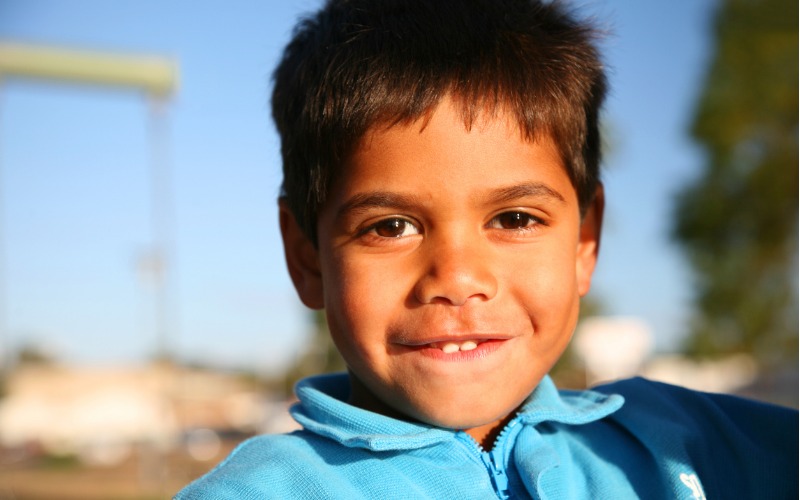Resources for parents and carers of Aboriginal students
This page contains useful resources that parents and carers of Aboriginal students might find useful when raising school-age children.

NSW AECG Partnership Agreement
The Partnership Agreement is a statement of intent of how the NSW Aboriginal Education Consultative Group Inc. (AECG) and the Department of Education are planning on working together. The strength of the NSW AECG is its community base through its network of local and regional AECGs. This allows Aboriginal people to have a voice in self-determining their educational future which will impact on the future prosperity of Aboriginal communities.
Personalised Learning Pathways Guidelines
The aim of these guidelines (PDF 270.78KB) is to provide schools with information to support the effective development and implementation of Personalised Learning Pathways (PLPs) for Aboriginal students.
Personalised Learning Plans are now called Personalised Learning Pathways. The change in name does not alter their intent or the processes involved in ensuring their effective development and implementation.
PLPs are an effective tool for increasing Aboriginal student engagement. They have the potential to support improved learning outcomes and educational aspirations when they are developed in genuine partnership with Aboriginal students, their parents or carers and teachers. They can be customised by each school and Aboriginal community to meet local needs and contexts.
Working with Aboriginal Communities
This book is designed to support educators in the implementation of Aboriginal perspectives in K-6 syllabus, mandatory Aboriginal cross-curriculum content in Years 7-10 syllabuses, the Years 7-10 and Stage 6 Aboriginal Studies syllabuses, and the K-10 Aboriginal Languages syllabus. It provides advice on how to seek support in developing Aboriginal perspectives, strategies for starting the consultation process, and guidance in developing working relationships with Aboriginal communities.
Families NSW
This easy-to-read and colourful series of booklets help Aboriginal families, parents and carers with parenting tips and family information to help grow strong healthy kids.
The booklets talk about how families can help babies to grow up strong by spending time with them - cuddling, playing, singing, reading, listening, telling stories and talking.
The booklets have been written in collaboration with different Aboriginal communities to ensure that they reflect the different Aboriginal languages in NSW and also include photos of Aboriginal families local to the regions.
The booklets also provide useful contacts for Aboriginal organisations in the local regions.
Deadly Tots
Deadly Tots resources were developed as part of the 2011 Deadly Tots project, a communication strategy to share evidence-based information on the social emotional and intellectual development of children aged 0-5 years with families and communities of Aboriginal children in the southeast, inner west and northern regions of Sydney. They were updated in 2015.
Kids Matter
This page brings together KidsMatter resources about the social and emotional wellbeing of Aboriginal and Torres Strait Islander people across all four sub-sites: KidsMatter Primary, KidsMatter Early Childhood, KidsMatter Families and KidsMatter Health & Community.
Researching Parent Engagement: A Qualitative Field Study
This report documents the findings of an Australia-wide research project, Researching Parent Engagement: A Qualitative Field Study.
The study's authors used a qualitative ethnographic approach exploring parent engagement in contexts where little research has been done, focusing on Aboriginal, low SES, Culturally and Linguistically Diverse (CALD) parents, and parents of children with special needs. The research team were selected for their particular expertise in relation to these groups.
This research was undertaken by the Centre for Educational Research, Western Sydney University in collaboration with the Australian Research Alliance for Children and Youth (ARACY).
NSW Education Standards Authority - Aboriginal Education Contexts
The Aboriginal Education Contexts pages on the NSW Education Standards Authority (NESA) website showcases examples of school-developed context-based teaching and learning projects collaboratively developed by teachers, Aboriginal education workers and local community members.
The materials show the educational and cultural journeys of teachers, students and community members in a range of schools and communities in rural and urban areas. Where possible these are recounted through video, audio, digital images and work samples.
NESA's commitment to Aboriginal Education
NESA has developed a Commitment to Aboriginal Education in partnership with the Aboriginal Education Consultative Group NSW Inc. (AECG).
Implementing the Early Years Learning Framework
The Early Years Learning Framework (EYLF) contains a series of inter-related elements that are "fundamental to early childhood pedagogy and curriculum-decision making." It highlights five key outcomes that holistically capture the "integrated and complex learning and development of all children".
Five key principals are also outlined that are intended to underpin educators practice and to support children to achieve the EYLF outcomes.
Lastly, the framework sets out eight key practices informed by sound pedagogical approaches to early childhood that educators can draw on to promote children's learning.
Aboriginal child and family health resources
One of the Key Performance Indicators for the Northern Child Health Network (NCHN) is to identify and improve services for Aboriginal people and other disadvantaged groups.
The NCHN have been involved in enhancement funded projects for some years to try and meet this KPI.
The NCHN have included links to assist Health Professionals provide culturally appropriate information for children and their family.